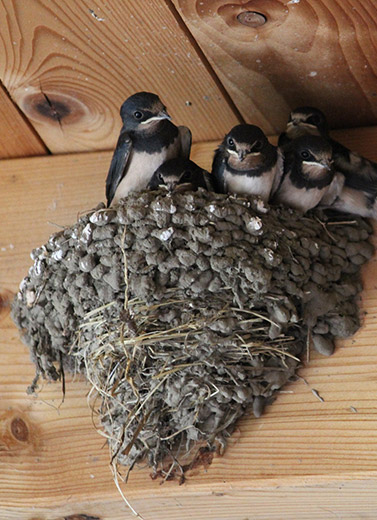Swallow Identification
To properly identify swallows, swifts, and martins, the proper equipment is necessary
High-quality binoculars offer a wide field of view.
A good zoom is useful so as not to cause stress or otherwise disturbing any nervous birds.
A field guide that shows swallows both perched and at different flight angles with varied wing positions.
Protects from the sun and allows for longer observation.
Identify Barn Swallow and House Martin by Sight
Is the bird’s plumage iridescent or dull?
How sharp is the contrast on different body parts?
- Are any markings visible?
Is the forehead, crown, cheeks, throat, or nape a different or distinct color?
- Is there a necklace or band that crosses the bird’s breast?
- Is it a sharp marking or more fuzzy, smudged, or blurry?
- What color is it?
- How long are the bird’s wings?
- Are they tapered or rounded?
- How broad are the wings compared to their length?
- What angle are the wings held in a smooth, straight glide?
- How long is the tail?
- Is it straight, notched, or forked?
- Does it have long streamers?
- Are any spots, streaks, or other markings visible?
Other Ways of Identification
Compare the season the bird is seen to its geographic location and the type of habitat.
Many swallows sound similar and solitary birds can be hard to hear, but if a swallow colony is found the variety of sounds can be used to help with proper identification.
Nest construction can be an instant confirmation of a particular species. Check for the nest type, nesting materials and man-made nesting structures.
While swallows can blend together in mixed flocks, large flocks of one species are most common. Instead of getting frustrated trying to identify a single bird, watch multiple birds for different identity clues that will either confirm a species or make an unusual guest stand out.
Detecting swallows from while flying can be a challenge, but with practice one can become familiar with local species and easily learn to recognize these birds correctly.





